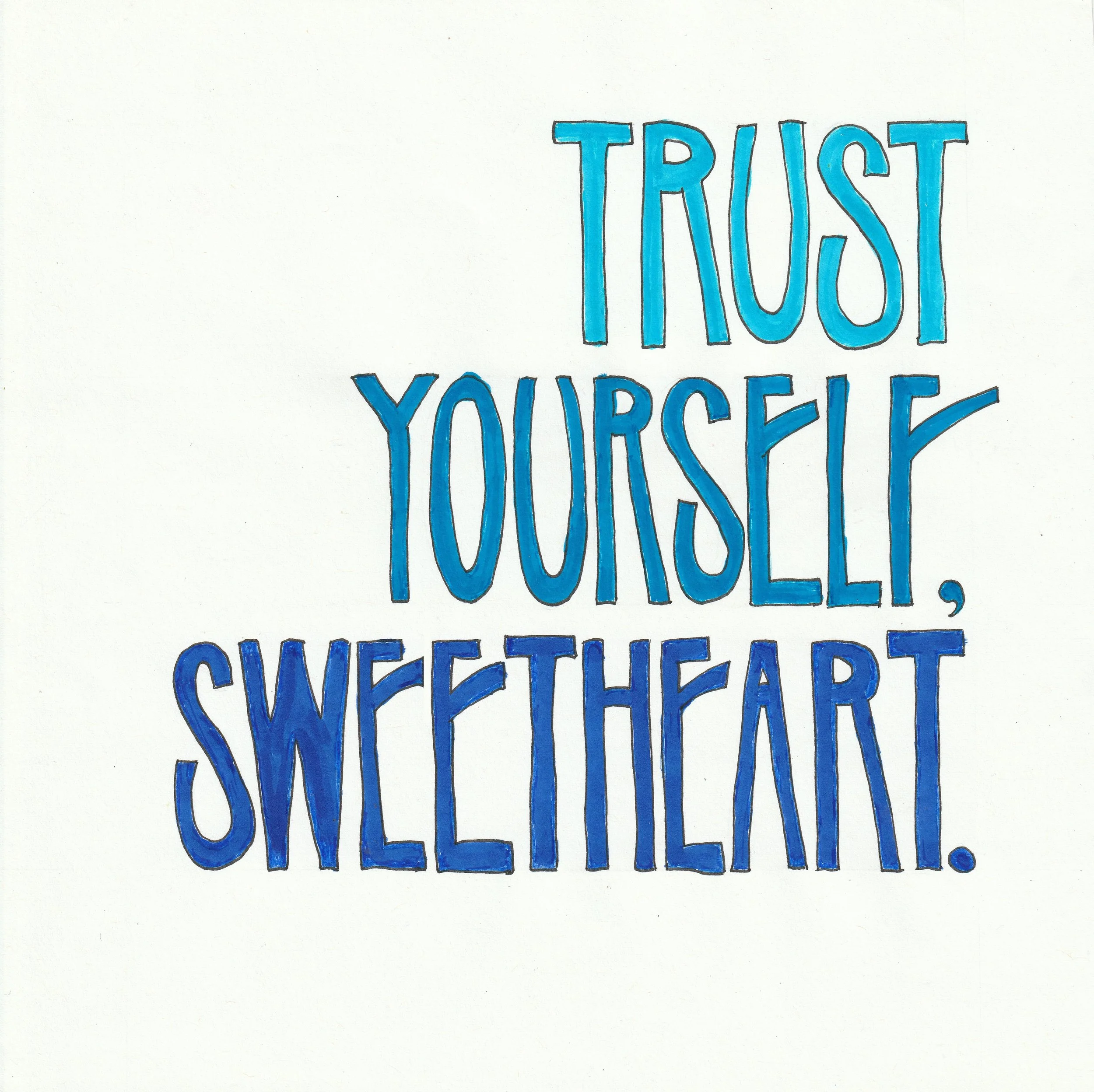Like swallowing a stone, my stomach drops and collapses. A wash of heat burns up the front of me.
A loss of trust is sickening. Whether I have broken a trust with another, someone has broken one with me, or I have broken trust with myself, the sensation is the same — and it is wretched.
In the past few years, as I re-imagine my work in movement education, rethink my relationship with diet, fitness and wellness cultures, and reexamine my implicit biases and prejudices, I understand that I have caused harm and I have been harmed. Trusts have been and continue to be broken. Realizing this is never easy but it is an essential step to rebuilding and repairing.
As I wrote about not long ago, encouraging people to trust themselves and their bodies is at the core of my work. Our culture lures us at every turn to look outside ourselves for how to do everything from building our careers to nurturing our relationships, from breaking habits to deciding what to eat. And while experts often have wise insights to share, if we don’t fully trust those experts (or if we give them unearned trust) and if we don’t fully trust ourselves, we will eventually feel the sting.
Brené Brown’s latest book, Atlas of the Heart is a deep dive into eighty-seven of the emotions and experiences that define what it means to be human. In both the book and the audio book (which is beautifully produced and is full of additional examples and stories), Dr. Brown walks us through a framework for cultivating meaningful connection so we can understand ourselves and communicate with others with clarity.
Dr. Brown points out that trust is not an emotion but rather an essential underpinning for core emotions like love and belonging. Her research shows that in order to build strong, resilient relationships, it is crucial to build and maintain trust.
As a scaffolding of support for trust building, her team created a metric for aligning with and building trust that uses the acronym BRAVING. When she consults with organizations, this is the tool that is most often adopted and it is a format that is applicable not just to companies, but to all relationships – including the one with ourselves.
B R A V I N G to Trust
B – Boundaries
Set them and honor them.
Ask: Was I clear about what’s OK and what’s not OK? Did I respect the others’ boundaries and my own?
R – Reliability
Do what you say you’ll do.
Ask: Was I reliable? Did I follow my word?
A – Accountability
Own your mistakes, apologize and make amends.
Ask: Did I hold myself and others accountable? Did I do the work of repair when needed?
V – VaultShare only what is yours to share.
Ask: Did I respect the vault and share appropriately?
I – Integrity
Choose courage over comfort; what’s right over what’s fun, fast or easy. Practice your values; don’t just profess them.
Ask: Did I act with integrity with myself and others?
N – Non-Judgment
I can ask for what I need and you can ask for what you need.
Ask: Did I ask for what I needed? Did I allow others to ask for what they need? Was I nonjudgmental about needing help and other needing help?
G – Generosity
Extend a generous interpretation as possible; give benefit of the doubt, especially to those with the least power in the situation.
Ask: Have I been generous to myself and to others?
Look through these 7 guidelines and pick a couple to focus on in your relationships – especially the one with yourself.
Broken trust has painful and damaging implications for ourselves, our people and our communities — and none of us is likely to escape it. The brave choice of choosing to build and maintain trust may be uncomfortable at times. But BRAVING to trust creates a strong foundation that can withstand relationship changes and repair that stone-sinking feeling of broken trust.




